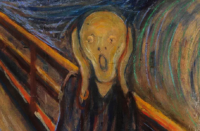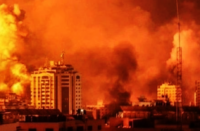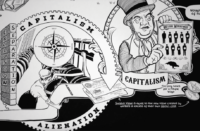Some anniversaries are widely observed in the West, including Japan’s attack on Pearl Harbor, Holocaust Memorial Day, and the atrocities in New York in September 2001. Yet there are other undesirable anniversaries that have largely been allowed to disappear.
1954: CIA terminates the ten-year Guatemalan Revolution
Guatemala, a small central American country, remains a ghastly nightmare to this day. The causes of its suffering can be traced to President Dwight Eisenhower implementing a CIA-run coup that installed successive military dictatorships.
Guatemala had been enjoying a ten-year revolution (1944–1954), firstly under Juan José Arévalo, who introduced a minimum wage and increased funds for education. Arévalo’s democratically elected successor in 1951, Jacobo Árbenz, instituted land reforms to grant property to landless peasants.
Such inclusive measures were deemed an unacceptable threat to US hegemony over the western hemisphere. Árbenz’s policies threatened the United Fruit Company, a powerful corporation that exploited Guatemalan workers, which had direct ties to Eisenhower’s government through John Foster Dulles (secretary of state) and his brother Allen Dulles (director of the CIA). The company aggressively lobbied Eisenhower, who authorised the CIA to aid a force led by the impending right-wing dictator, Carlos Castillo Armas.
With the further threat of invasion by American forces, the Guatemalan army eventually refused to fight on—an error of historic proportions. Almost four decades of civil war followed, as successive US-backed dictators committed atrocities such as genocide against the Maya people.
1963: Juan Bosch toppled in the Dominican Republic
Interference by the United States in the Dominican Republic goes back to the governments of William Howard Taft and Woodrow Wilson in the early twentieth century. Wilson, for example, ordered the invasion of the country by US marines in 1916, who remained for more than six years—an occupation reviled by the Dominican population.
The democratic election of a socialist reformer, Juan Bosch, in February 1963, replacing a military junta, caused great concern in elite American circles. Their fears were quickly realised as Bosch undertook progressive steps that the Dominican population had never known before (or since), including plans to reduce poverty, declaring labour rights, strengthening unions, rights for farmers, and so on. Bosch was declared “a communist” by pro-US business magnates and members of the army. On 25 September 1963 a group of military commanders, led by Elías Wessin y Wessin, with crucial US support, expelled Bosch from the country.
1964: US-backed forces overthrow the government of Brazil
A left-wing nationalist, João Goulart, became the democratically elected president of Brazil in September 1961, setting alarm bells clattering within the liberal Kennedy government. Goulart began implementing structural reforms in the massive resource-rich South American country that would help integrate the general population in society. The United States was loath to sit helplessly by, as this movement came within “our hemisphere,” as President Kennedy described it.
Goulart was hostile towards US capitalist democracy, which seeks to primarily serve elite powers. Shortly before his death Kennedy had been preparing the groundwork for ousting Goulart; the coup (31 March to 1 April) took place less than five months later under the reign of his successor, Lyndon Johnson. “We just can’t take this one [social movement],” warned Johnson.
Goulart’s toppling received crucial CIA funds and arms, while Brazil was placed under a neo-Nazi dictatorship that tortured its people for more than twenty years.
1976: Argentine government overthrown by US-backed forces
The Argentine coup of 1976 was the sixth, and final, forced government change in the country during the twentieth century. The US-backed Argentine armed forces installed the most vicious Latin American military dictatorship of all, responsible for tens of thousands of murdered and “disappeared,” under convicted war criminals such as Jorge Rafael Videla and Reynaldo Bignone. Revealingly, the Nazi-style regime was a favourite of President Ronald Reagan.
The coup toppled Isabel Perón, the first female president in world history, wife and successor of the deceased president Juan Perón.
Henry Kissinger, the US secretary of state, met several Argentine military commanders, suggesting that they crush their enemies before human-rights issues became known to the American public. “We read about human rights problems, but not the context. The quicker you succeed the better,” he said. So, not for the first time, Kissinger (winner of the Nobel Prize for Peace), was implicated in war crimes.
1983: US invasion of Grenada
The American invasion of the tiny Caribbean island of Grenada (under President Ronald Reagan) drew a scathing international response from the UN General Assembly. It “deeply deplores” the intervention, it said, which “constitutes a flagrant violation of international law.” It further condemned “the deaths of innocent civilians . . . [and] the killing of the Prime Minister [Maurice Bishop].”
The intervention was even opposed by most NATO countries and US allies, including France, Portugal, Australia, Spain, and the Netherlands—all irrelevant criticism for elite Western figures that believe the United States should be a law unto itself.
The usual pretexts for the invasion of Grenada were put forward by the US government, and obediently relayed by the free press: Grenada was a “Marxist dictatorship,” and the US army was on a “rescue mission” to defeat a Cuban military presence defending “this outpost of Soviet imperialism.” The true reason for the attack? To expel a government not amenable to American hegemonic demands and that might act as a further example of defiance (after Cuba). The abysmal after-effects for Grenadians was quickly airbrushed from history.





